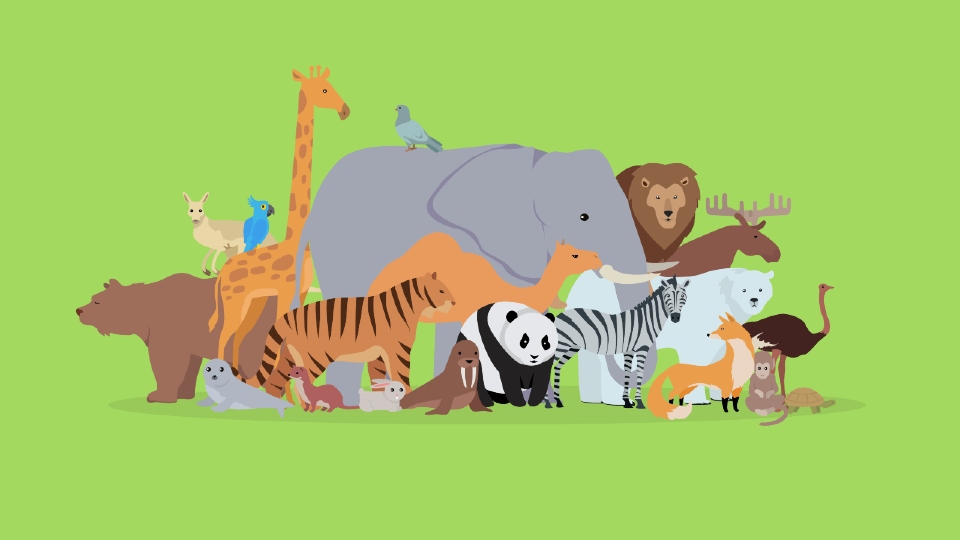
Image courtesy of Getty Images.
If humans and other animals were living in the same environment, why didn’t other animals evolve like us? – question submitted by Sami, aged 13, London, UK.
Emeritus Professor of Biological Anthropology Barry Bogin provides an answer as part of The Conversation's Curious Kids series, which gives children the chance to have their questions about the world answered by experts.
Here's what he had to say...

This is a brilliant question. Humans have evolved differently to other animals. We have much bigger brains relative to body size and in absolute size than other mammals, and have a level of intelligence that other animals don’t.
There are many advantages to intelligence, such as the ability to plan and cooperate, innovate new techniques and share information about what works.
The reason that living things evolve certain features, like stripes on a tiger, bright colours on a butterfly or a big brain in humans, is that these features have benefits that help them survive. The living things with these beneficial features then pass them on to their offspring.
There are a number of hypotheses – ideas – about the origins of human intelligence. The one I do my research work on is called biocultural reproduction.
Having big brains allows humans to keep more babies alive than other animals. According to the biocultural reproduction hypothesis, how intelligence helps us to keep babies alive comes down to how we care for each other – and especially how we look after children.
Helping each other
Many animals live in small or large social groups, and some social species of birds and mammals, such as meerkats, help each other to feed and protect their babies. This is called cooperative breeding. The helper animals don’t have any babies of their own. They give up their own reproduction to assist a dominant family member, such as their mother or older sister.
People are different. Anyone who wants to and is able to have a baby can do so. Not all human parents can or will care for their own babies, but other people often take care of the children of others.
Parents and other carers may invest in young people for many years, sometimes for all their life. I am a parent and I continue to help my grown-up offspring, and their offspring – my grandchildren. This helping is what scientists call biocultural reproduction.
The carers may be genetically related to the child they look after, but they also may not be. The rules for how people care for each other are not set by genes, but by the names we give each other. These are not names like Sami or Barry, but things like “daughter”, “auntie”, “grandfather”, “cousin” or “friend”.
Using names like these requires
symbolic language. This means that the names we call each other represent ideas about how we should treat each other. Only humans and some of our ancestors evolved this kind of symbolic communication...
Professor Bogin's article goes on to discuss the importance of a big brain and how humans differ from their closest biological cousins, such as chimpanzees. Read the article in its entirety here.
Notes for editors
Press release reference number: 22/02
Loughborough is one of the country’s leading universities, with an international reputation for research that matters, excellence in teaching, strong links with industry, and unrivalled achievement in sport and its underpinning academic disciplines.
It has been awarded five stars in the independent QS Stars university rating scheme, named the best university in the world for sports-related subjects in the 2021 QS World University Rankings and University of the Year for Sport by The Times and Sunday Times University Guide 2022.
Loughborough is in the top 10 of every national league table, being ranked 7th in The UK Complete University Guide 2022, and 10th in both the Guardian University League Table 2022 and the Times and Sunday Times Good University Guide 2022.
Loughborough is consistently ranked in the top twenty of UK universities in the Times Higher Education’s ‘table of tables’ and is in the top 10 in England for research intensity. In recognition of its contribution to the sector, Loughborough has been awarded seven Queen's Anniversary Prizes.
The Loughborough University London campus is based on the Queen Elizabeth Olympic Park and offers postgraduate and executive-level education, as well as research and enterprise opportunities. It is home to influential thought leaders, pioneering researchers and creative innovators who provide students with the highest quality of teaching and the very latest in modern thinking.
![]()

